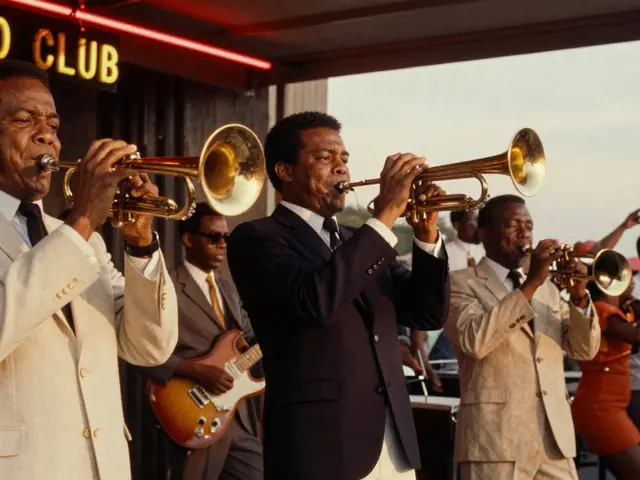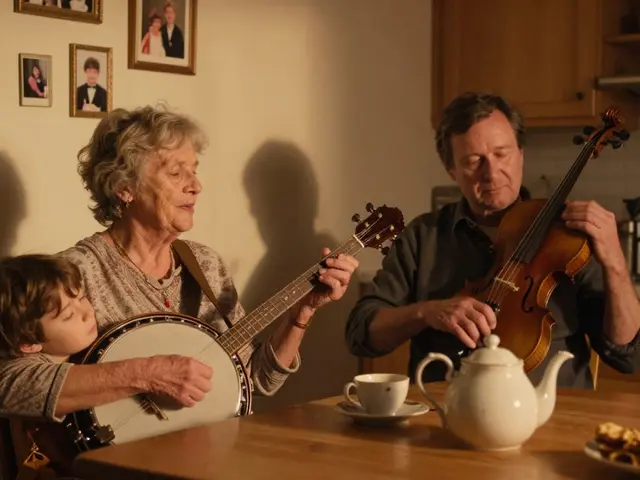Rediscovering The Magic in Classical Music
Remember back in school when our music teachers would make us listen to music by Beethoven, Mozart, and Bach? Every fiber of my teenage spirit roared in gentle protest as I grappled with the idea of being 'cultured'. I felt it was archaic, irrelevant, and oh so boring! Little did I realize then that these ear-pleasing symphonies and sonatas, these enduring works of legendary composers, weren't just influences of a bygone era, they are an immovable part of the continuum of music.
And you know what? Classical music isn't just a collection of harmonies composed by old chaps wearing wigs. Nope, it's a whole lot more than that. Stray away from the mainstream music for a while, and you will discover how classical music sticks its nose in our everyday lives. From TV commercials to your favorite movie soundtracks, from calming music for stress relief to improving productivity – classical music influences us in more ways than we can fathom.
Lately, I've been feeling an irresistible pull towards classical music, experiencing its therapeutic effects. I've been dealing with a known pest - stress. The corporate life, the deadlines, presentations, meetings, all swirled into a horrible cocktail threatening to lead me into a burnout. On a whim, I turned to Beethoven's 5th Symphony, and lo and behold, the turmoil ceased. I was drawn into the swirling vortex of harmonies, the fast tempo stirring a mix of emotions, and then the serene notes touching upon the tranquility. It felt... inexplicably soothing.
Classical Music in a Contemporary World
Many of us tend to think of classical music as non-existent when it comes to shaping the popular genres we know today. This, honestly, couldn't be farther from the truth. Our favorite pop, rock, hip-hop, even electronic music dj's, are influenced by classical music and have blended elements of it in their songs. For instance, Eric Prydz’s electronic dance hit 'Pjanoo' infuses classic piano-based harmony, resulting in a heady mix of old and new. Sting, the English rock musician, is evidence enough of how classical composition influenced his work. 'Russians', from Sting's first solo album, borrowed a theme from Sergei Prokofiev's 'Lieutenant Kijé Suite'.
Classical music isn't just inspiring contemporary musicians; it's also helping scriptwriters and movie directors strike the right chords with the audience. Remember Nolan's 'Interstellar'? Its adrenaline-rushing soundtrack was a work of Hans Zimmer, a blend of the classical organ, strings, and electronic music. So, right under our noses, classical music has been heightening our cinematic experience, sending chills down our spines, prompting smiles, sadness, laughter, fears, all at the command of a score.
The Science Behind Classical music
Isn't it fantastic how we see science meshing with music to explain its effects on our brain? They say classical music works like magic on our cognitive abilities, and I say, why not? When my mind is a tearing whirlwind, I have found solace in the serene notes of Mozart's 'Piano Concerto No. 21'. It brought clarity, tranquility, and the focus I needed to carry on my tasks.
There's this term researchers use often - the 'Mozart Effect'. The term was coined following studies that demonstrated listening to Mozart's music resulted in significant short-term improvement in spatial-temporal reasoning – the ability that aids in performing complex tasks. Now, who wouldn't want a dose of that before an important presentation or that nerve-wracking board meeting?
There's more to it! Classical music has been used as a potent remedy in the health and wellness industry. From the soothing tunes helping to ease anxiety to upbeat baroque music keeping the heart healthy, the benefits are manifold. A study conducted by the University of Maryland demonstrated that when heart patients listened to classical music, their blood vessels widened, increasing blood flow - akin to the aerobic effect of laughing, brisk walking, or even a dose of dark chocolate. Go figure!
Classical Music for Productivity
Did you know Steve Jobs was a fan of Bach? Yes, Apple's co-founder found solace and productivity in Bach's music. Now, that's saying something, isn't it? It isn't a coincidence that many influential leaders have turned to classical music to enhance their productivity.
The synergy between classical music and productivity extends far beyond anecdotal evidence or personal preferences. A study by Stanford University revealed how classical music, distinctive in its resolved patterns and recurring harmonies, aids in retaining attentiveness during mundane tasks. Baroque music, with its 60 beats per minute pattern, triggers the release of alpha brainwaves, promoting concentration and focus. No wonder the monotonous task of compiling endless data sheets seems less tiresome when you're plugged into Handel's 'Water Music'.
Learning the Language of Classical Music
For those of you just dipping your toes in the vast ocean of classical music, remember, it's more about how it makes you feel than understanding the complexities of the composition. Just let the music guide your senses. And believe me when I say, it gets better with time. The more you listen, the more the nuances reveal themselves, and the more ingrained it becomes in your daily life.
My journey into the world of classical music has been filled with awe, intrigue, and a sense of completeness. And there's a vast sea still left to explore. That's the beauty of it! So, I invite you to embark on this journey with me and unravel the magic, depth, and unparalleled benefits classical music has to offer. Let us not relegate it to the annals of history but embrace it as an enduring and increasingly relevant part of our modern lives.






